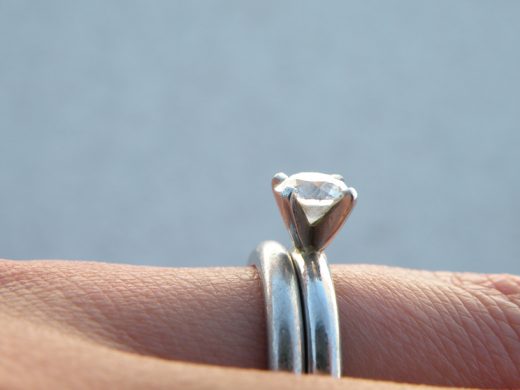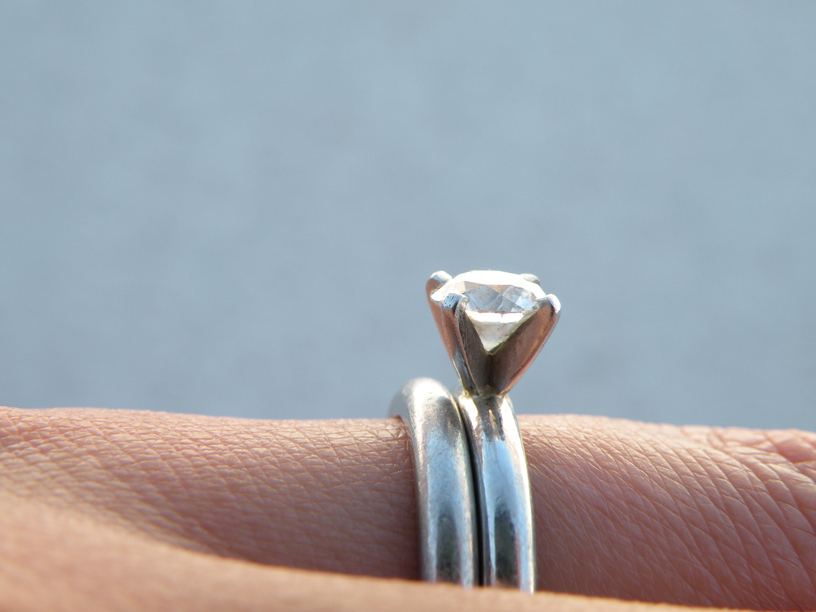As we become more aware of how the choices we make affect the world we live in, it’s normal to alter our lifestyle in order to do our part to help the environment. From washing our cars less frequently to running our large appliances at night to avoid peak power usage hours, these little changes can make a big difference if enough people practice them frequently.
But this doesn’t just apply to saving electricity and using less water. By choosing lab-grown diamonds over natural diamonds, buyers can help the environment—and their wallets. Whether it’s diamond rings or stunning necklaces, every diamond makes a difference.
So what’s the difference between lab-grown and naturally mined diamonds?
1. Environmental Impact
If you’re a conscious consumer, knowing where your diamonds come from is important! It’s no secret that diamond mining is a dangerous and wasteful practice, but few consumers realize just how negative the environmental and humanitarian impact is for this practice.
On top of the diamond industry exploiting child labor in many countries, even adult diamond miners are often underpaid and work in extremely dangerous and difficult conditions. Illegal diamond trading, diamond smugglers, and human trafficking surround the mining industry. In addition to human conflict, it also has a negative impact on the environment. Mining can displace up to 1,700 tons of earth just to produce one carat of rough diamond. As mining companies move from one area to another, they destroy farmland and forests, harming ecosystems and polluting the air and water in the areas.
Lab-diamonds eliminate all of this. Using diamond seeds and high-pressure, high-temperature chambers, scientists in labs can create a perfect gemstone in a short amount of time, with very little environmental impact.
Because scientists create these diamonds in a lab, the big players in the diamond industry don’t take a huge cut of the sale, which translates to more money in the pockets of consumers—nearly 40% in most cases. Lab diamonds are grown from a diamond seed, which means that they are nearly identical to a natural diamond in every way. Choosing a lab diamond means that you can buy a bigger gemstone for a better price, or use that extra money to customize a ring set or necklace.
3. Lab Diamonds Are True Diamonds
Lab diamonds and mined diamonds are identical in every way except for the way they are created. They are cut and polished the same, they are inspected and rated using the same method, and they are given the same level of authenticity when rated. A Lab diamond consists of the same chemical and crystal structure and carbon makeup of a natural diamond, but lab diamonds tend to be clearer and are less likely to have imperfections because they haven’t undergone pressures and changes within the earth’s crust.
And since each diamond is created in a controlled lab under identical circumstances, lab diamonds guarantee quality and sparkle every time.
4. The Next Big Thing
While manmade diamonds have been around for a few decades, they’ve only been gaining popularity in the past decade or so. As the methods have been perfected and the science has become more precise, scientists have been able to produce bigger, high-quality gems and sell them at lower prices. It’s only a matter of time before lab diamonds become top industry competitors. If you fancy yourself a trendsetter, owning a lab-grown diamond is definitely something that will set you apart. The clarity and sparkle make these diamonds a conversation piece, but the real talking point is the environmental impact— or lack thereof.
Whether you’re looking for a diamond engagement ring, a pendant for that sterling silver chain she loves, or loose diamonds for a setting you already have, lab diamonds are the perfect choice for any socially responsible shopper— and for their wallet.




